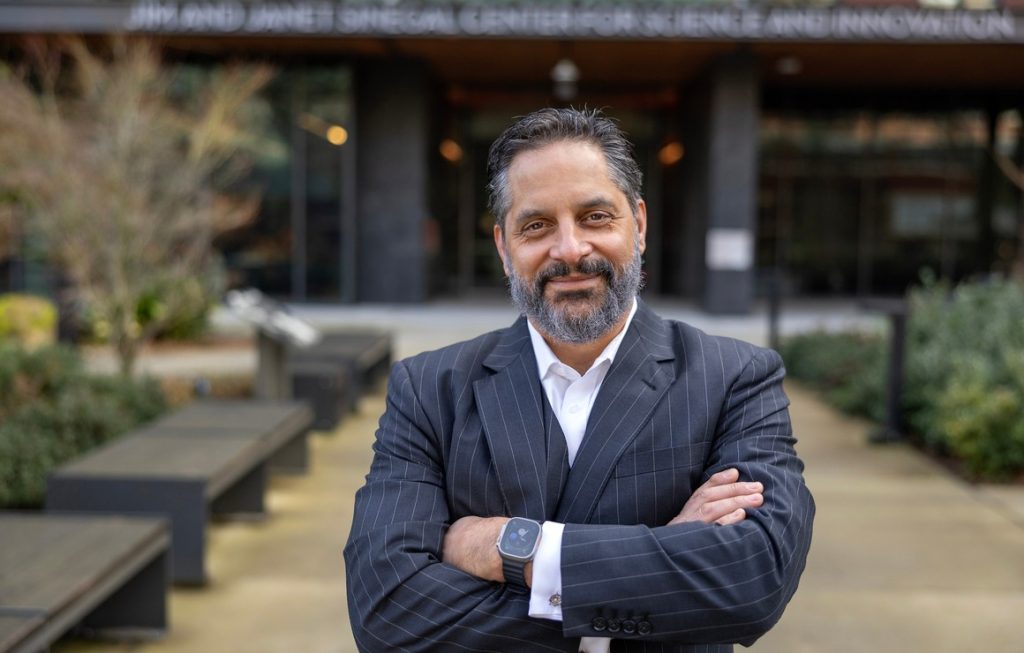Eduardo Peñalver’s Journey: From Seattle University to Georgetown Leadership
A Homecoming and a New Beginning
Eduardo Peñalver, the current president of Seattle University, has announced his upcoming transition to become the president of Georgetown University in a move that connects two prominent Catholic Jesuit institutions. Having led Seattle University since 2021, Peñalver will conclude his tenure on March 31, 2026, before assuming his new role at Georgetown on July 1. This career advancement represents both a professional opportunity and a personal challenge for Peñalver, who acknowledged the difficulty of his decision. “This was not an easy decision,” he shared with the Seattle University community, expressing both excitement about continuing his work in Jesuit higher education and sadness about leaving the Pacific Northwest, which he considers home. Peñalver’s deep connection to the region stems from his upbringing in Puyallup, Washington, and his education at Henry Foss High School in Tacoma, making this transition especially poignant.
A Legacy of Innovation and Growth
During his relatively brief but impactful tenure at Seattle University, Peñalver has established what many characterize as “a legacy of growth and innovation.” Among his notable achievements was the successful integration of Cornish College of the Arts into the Seattle University community, expanding the institution’s artistic footprint. He also spearheaded the launch of several new academic programs designed to address emerging educational needs. Perhaps most significantly, Peñalver championed the “Technology Ethics Initiative,” a forward-thinking program created to “convene and inspire productive discussions about the role of transformative technologies for a just society.” This initiative, led by political science professor Onur Bakiner, has positioned Seattle University at the intersection of technological advancement and ethical inquiry, examining critical questions around AI governance models and other emerging technologies that increasingly shape our society.
Embracing STEM and Technological Advancement
Under Peñalver’s leadership, Seattle University responded to the growing demand for education in science, technology, engineering, and mathematics (STEM) disciplines. The university’s College of Science and Engineering and computer science department experienced remarkable growth, reflecting broader educational trends and workforce demands. This expansion was supported by significant institutional investments, most notably a $100 million Center for Science and Innovation that garnered substantial corporate support from tech giants Amazon and Microsoft. This center represents not just a physical expansion of campus facilities but a philosophical commitment to preparing students for careers in rapidly evolving technological fields while maintaining the university’s Jesuit tradition of ethical inquiry and social justice. The center exemplifies how Peñalver successfully bridged Seattle University’s values with the practical needs of students entering an increasingly tech-driven economy.
Bridging Faith, Ethics, and Technology
Peñalver’s vision for Seattle University included a distinctive focus on the ethical dimensions of technological advancement, reflecting both his personal intellectual interests and the university’s Jesuit mission. This approach was perhaps best illustrated by his invitation to Father Paolo Benanti, an advisor to Pope Francis on artificial intelligence and technology ethics, to join Seattle University as a distinguished visiting professor in 2024. Peñalver further strengthened connections between the university and the tech industry by moderating a conversation between Benanti and Microsoft President Brad Smith for Microsoft employees at the company’s Redmond campus. These initiatives demonstrate how Peñalver positioned Seattle University as a thoughtful voice in critical conversations about technological ethics, creating meaningful dialogue between religious perspectives, academic inquiry, and industry practices at a time when such conversations are increasingly vital.
A Distinguished Academic Journey
Peñalver’s path to university leadership was built on exceptional academic achievements and diverse professional experiences. After graduating magna cum laude from Cornell University in 1994, he continued his studies as a Rhodes Scholar at Oxford University, focusing on philosophy and theology. He later earned his law degree from Yale Law School and clerked for former U.S. Supreme Court Justice John Paul Stevens, gaining experience at the highest levels of the American legal system. Prior to his presidency at Seattle University, Peñalver served as dean of Cornell Law School, developing the administrative and academic leadership skills that would serve him well in university presidency. This combination of rigorous academic training, legal expertise, and administrative experience, coupled with his deep understanding of Catholic and Jesuit traditions, has made him particularly well-suited for leadership roles at Jesuit institutions committed to both academic excellence and social justice.
A New Chapter at Georgetown
As Peñalver prepares to lead Georgetown University, he has earned significant praise from his new institution. Thomas Reynolds, chair of Georgetown’s board of directors, described him as “an exceptional leader steeped in the Catholic and Jesuit tradition who brings a wealth of experience in higher education, a global mindset, a commitment to social justice and academic excellence, and a bold vision for Georgetown’s future.” Peñalver will succeed Interim President Robert Groves, who has led Georgetown for the past year following former President John DeGioia’s departure in 2024 due to health concerns. As Peñalver transitions to this prestigious role at one of America’s oldest and most respected Catholic universities, he carries with him not only his personal achievements and vision but also the insights and experiences gained during his transformative leadership at Seattle University. His appointment represents a continuation of his commitment to Jesuit higher education and its distinctive approach to forming students as both intellectually accomplished professionals and ethically grounded citizens committed to the common good.














